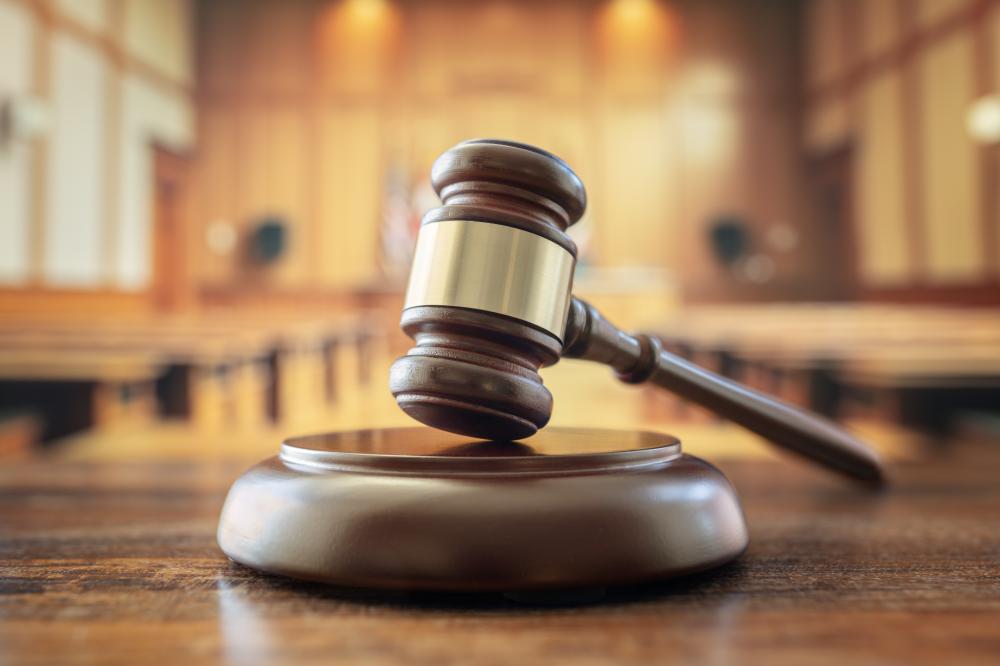Expect a U.S. Supreme Court majority to side with the tech industry in its content moderation fight against social media laws in Florida and Texas, experts told us in interviews last week.
The 2nd U.S. Circuit Appeals Court will hold in abeyance, pending the U.S. Supreme Court’s decisions in the NetChoice challenges of the Florida and Texas social media laws, New York Attorney General Letitia James’ appeal to lift the district court’s injunction that blocks her from enforcing New York’s Hateful Conduct Law, Section 394-ccc, said a 2nd Circuit clerk’s order Friday (docket 23-356). SCOTUS plans oral argument Monday on the tandem NetChoice challenges.
The U.S. Supreme Court granted U.S. Solicitor General Elizabeth Prelogar’s Jan. 22 motion for leave to participate as an amicus in oral argument on behalf of NetChoice and the Computer & Communications Industry Association in their challenges to the Florida and Texas social media content moderation laws, said separate text-only docket entries Friday (dockets 22-277 and 22-555). NetChoice and CCIA agreed to cede 10 minutes of their argument time to Prelogar (see 2401230037). Oral argument in the tandem cases is set for Monday.
Both sides during oral argument Friday at the 2nd U.S. Circuit Appeals Court in New York Attorney General Letitia James’ (D) appeal to reverse the injunction that bars her from enforcing New York’s Hateful Conduct Law (see 2310160001) gave less than definitive answers when asked by the three-judge panel whether a ruling in James’ appeal should await the U.S. Supreme Court's resolution of NetChoice’s First Amendment challenges to the Florida and Texas social media content-moderation laws (see 2311300012).
NetChoice and the Computer & Communications Industry Association used separate reply briefs Thursday at the U.S. Supreme Court to press for the defeat of the Florida and Texas social media laws on First Amendment grounds. The Florida statute (SB-7072) “is a compendium of First Amendment problems,” said their Florida brief (docket 22-277). It requires a select handful of private actors “to disseminate third-party speech against their will and restricts their ability to decide how to organize and present that speech,” it said. “It draws distinctions based on content, speaker, and viewpoint,” it said. It does all this “because Florida dislikes how websites like Facebook and YouTube have exercised their editorial discretion and wants to amplify speakers and messages the state prefers,” it said. Florida “remarkably” insists that SB-7072 doesn’t regulate speech at all, it said: “That claim blinks reality and belies Florida’s own explanations for the law, which are replete with professed concerns about the messages that it perceived certain websites to convey through their editorial choices.” In their brief (docket 22-555) in opposition to the Texas law (HB-20), NetChoice and CCIA argued that Texas Attorney General Ken Paxton (R) has advanced a “revolutionary interpretation” of the First Amendment that would require SCOTUS “to overturn multiple lines of cases.” Under the Texas AG’s theory, governments “would have virtually unchecked authority to control and burden the editorial choices of private parties who publish and disseminate speech,” said the brief. But the Texas AG’s brief is “replete with arguments” that SCOTUS “has repeatedly rejected,” it said. The AG “comes nowhere close to carrying his heavy burden” of demonstrating that HB-20 satisfies strict, or even intermediate, First Amendment scrutiny, it said. To the contrary, his arguments flout the SCOTUS cases and “ignore the evidentiary record,” it said.
The Chamber of Progress, CTA and six other nonprofits support the development of features to keep kids safe online, but they’re concerned that California’s Age-Appropriate Design Code Act, AB-2273, “restricts websites from exercising their First Amendment rights to moderate content,” said their amicus brief Wednesday (docket 23-2969) in the 9th U.S. Circuit Court of Appeals. The brief supports NetChoice and affirming the district court's preliminary injunction that bars California Attorney General Rob Bonta (D) from enforcing AB-2273 (see 2309190006).
The U.S. Chamber of Commerce has a substantial interest in the resolution of NetChoice’s constitutional challenge to AB-2273, California’s social media law, because it “implicates the stability” of the internet economy and “core constitutional rights of participants in that economy,” said the Chamber’s amicus brief Wednesday (docket 23-2969) at the 9th U.S. Circuit Court of Appeals. The brief supports NetChoice’s challenge and affirmance of the district court’s preliminary injunction blocking California Attorney General Rob Bonta (D) from enforcing AB-2273 (see 2309190006).
Florida’s Senate Bill 7072 is a “compendium of First Amendment problems,” and Texas’ HB-20 social media law “interferes with Petitioners’ First Amendment rights,” said petitioners NetChoice and the Computer & Communications Industry Association (CCIA) in reply briefs Thursday before the U.S. Supreme Court.
The U.S. District Court for Southern Ohio in Columbus scheduled a telephonic preliminary pretrial conference for March 14 at 10 a.m. EDT before U.S. Magistrate Judge Elizabeth Preston Deavers on NetChoice’s challenge to Ohio’s Parental Notification by Social Media Operators Act, said a clerk’s hearing notice Tuesday (docket 2:24-cv-00047). The parties are required to file a Rule 26(f) report at least a week before the conference, said the notice. Monday’s opinion and order by U.S. District Judge Algenon Marbley granted NetChoice’s motion for a preliminary injunction that, on constitutional grounds, blocks Ohio Attorney General Dave Yost (R) from enforcing the statute (see 2402130041). The judge granted NetChoice a temporary restraining order against the statute a week before it was to take effect Jan. 15 (see 2401090062).
TechFreedom opposes government efforts to control online speech, which is “precisely why” it opposes laws like California’s AB-2273 that mandate online age verification, said its 9th U.S. Circuit Court of Appeals amicus brief Wednesday (23-2969). The brief supports NetChoice’s challenge to AB-2273 on constitutional grounds and affirmance of the district court’s injunction that bars California Attorney General Rob Bonta (D) from enforcing the statute (see 2309180063).
